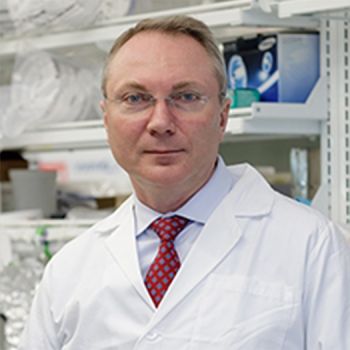Professor Igor Efimov is chairman of GW's Department of Biomedical Engineering and director of the NIH-funded Cardiovascular Engineering Laboratory. His lab studies the physiological and biophysical mechanisms of cardiovascular disease and develops novel therapies for heart diseases, with emphasis on heart rhythm and heart failure-related disorders. In 2008, Dr. Efimov co-founded Cardialen, Inc. to develop low energy cardioversion therapy, with a primary focus on atrial fibriliation.
Current Research
The Efimov laboratory investigates the arrhythmogenic and metabolic mechanisms of physiological remodeling during heart failure using human donor hearts, which are rejected for transplantation and human end-stage failing hearts procured at the time of transplantation. The major focus of these investigations is to identify biological mechanisms of cardiac remodeling specific to humans. We apply an array of state-of-the-art methodologies, including fast fluorescence imaging with voltage-, calcium, mitochondrial potential-, and other sensitive dyes. We also apply novel 3D dual beam imaging, which allows nano-imaging of cellular structure in human myocytes, which is disrupted during chronic heart diseases, including heart failure and atrial fibrillation.
Another direction of our research is focused on development of new generation of bioelectronics, based on flexible and stretchable electronics platform developed by our collaborator Dr. John Rogers from UIUC. This revolutionary electronics allows developing high-definition implantable organ conformal and wearable devices for diagnostics and therapy of variety of diseases, as well as for physiological monitoring of health during work, exercise, and other normal and stressful conditions. We aim to develop new generation of implantable and interventional cardiac devices for high-definition diagnostics and treatment of arrhythmias, ischemia, heart failure, and other diseases.

